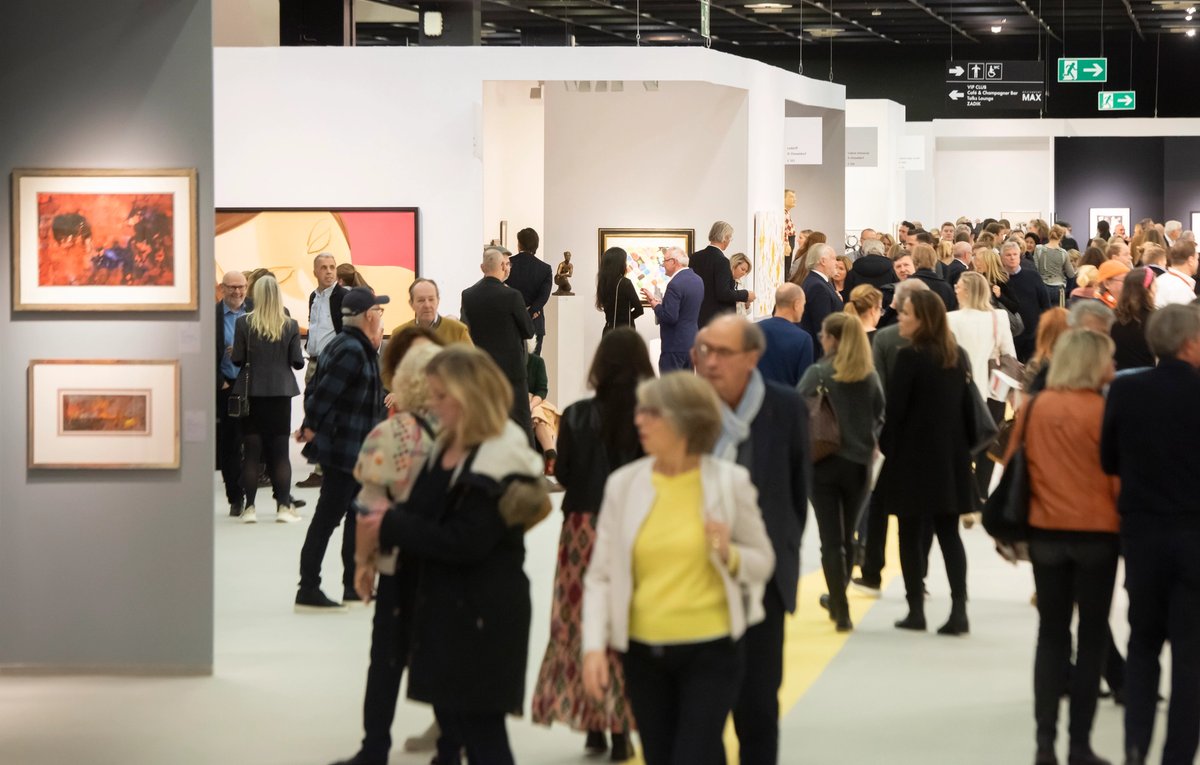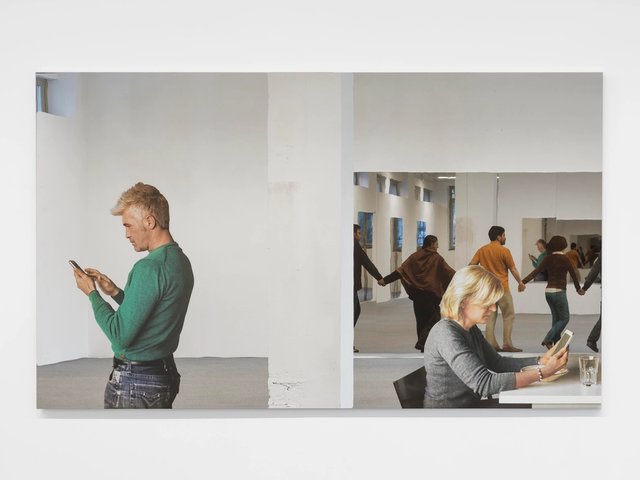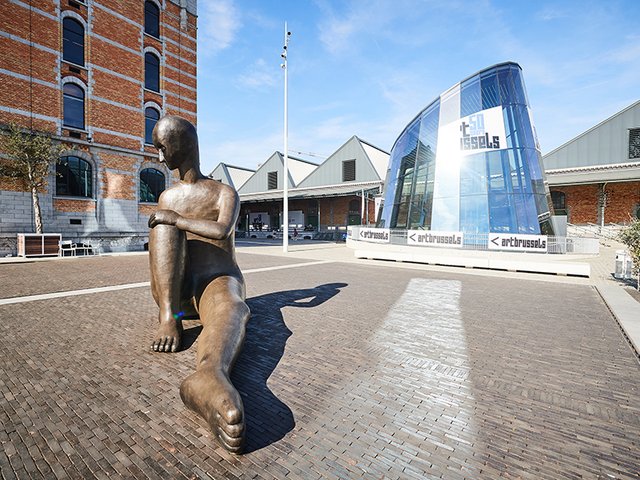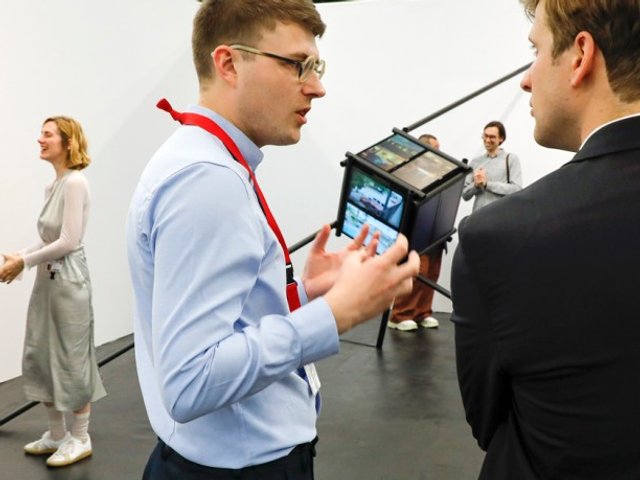Art Cologne, which runs from 7 to 10 November, faces a challenging environment this year. The German economy is ailing, the global art market has weakened and a reduction in value-added tax (VAT) on art sales that German dealers are counting on to breathe new life into the domestic trade does not take effect until next year.
The German economy is set to contract for the second consecutive year in 2024. It has been a tough year internationally for art sales; auction totals at Christie’s, Sotheby’s and Phillips dropped 27% in the first half of the year compared with 2023, according to a report by ArtTactic. The gloom has had an impact in the run up to Art Cologne, says Daniel Hug, the director of the fair.
The current economic mood, paired with poor sales results from the early autumn fairs in Seoul and New York, has “scared” some gallerists, he says. Ten galleries withdrew from Art Cologne this summer because of financial difficulties, he adds. Their places have since been filled by others, and Hug says he’s optimistic that this year’s edition will be a success, despite the difficult context. The fair will have 165 exhibitors compared with 173 last year, “a healthy adjustment and a reflection of the current state of the art market”, he says.
“I expect it to be like last year, which went well,” Hug says. “For the first time, we had three sales over €1m. This year, we had more applications from young galleries, so we increased our Neumarkt section from 20 booths to 26.”
Longstanding demand
The reduction in VAT on art sales to 7% from the current rate of 19% is due to take effect from January 2025 if it passes through parliament. Part of a large package of tax legislation, it is due to be approved by both houses this month.
The reduced rate is a longstanding demand of German art dealers, who said they suffer a disadvantage relative to competitors in other countries. Germany had a 7% rate for art sales until 2014, but was forced to scrap it and impose the 19% general VAT rate after art was excluded from a list of goods and services eligible for a reduced rate in a European Union directive. A new directive in 2022 allowed the reduced rate to be reintroduced.
Hug says he doesn’t expect the upcoming reduction in VAT to have a negative impact on sales at Art Cologne. “Art sales at art fairs take anything from three to six months until the final payment,” he says. “I expect collectors will request an invoice after January.”
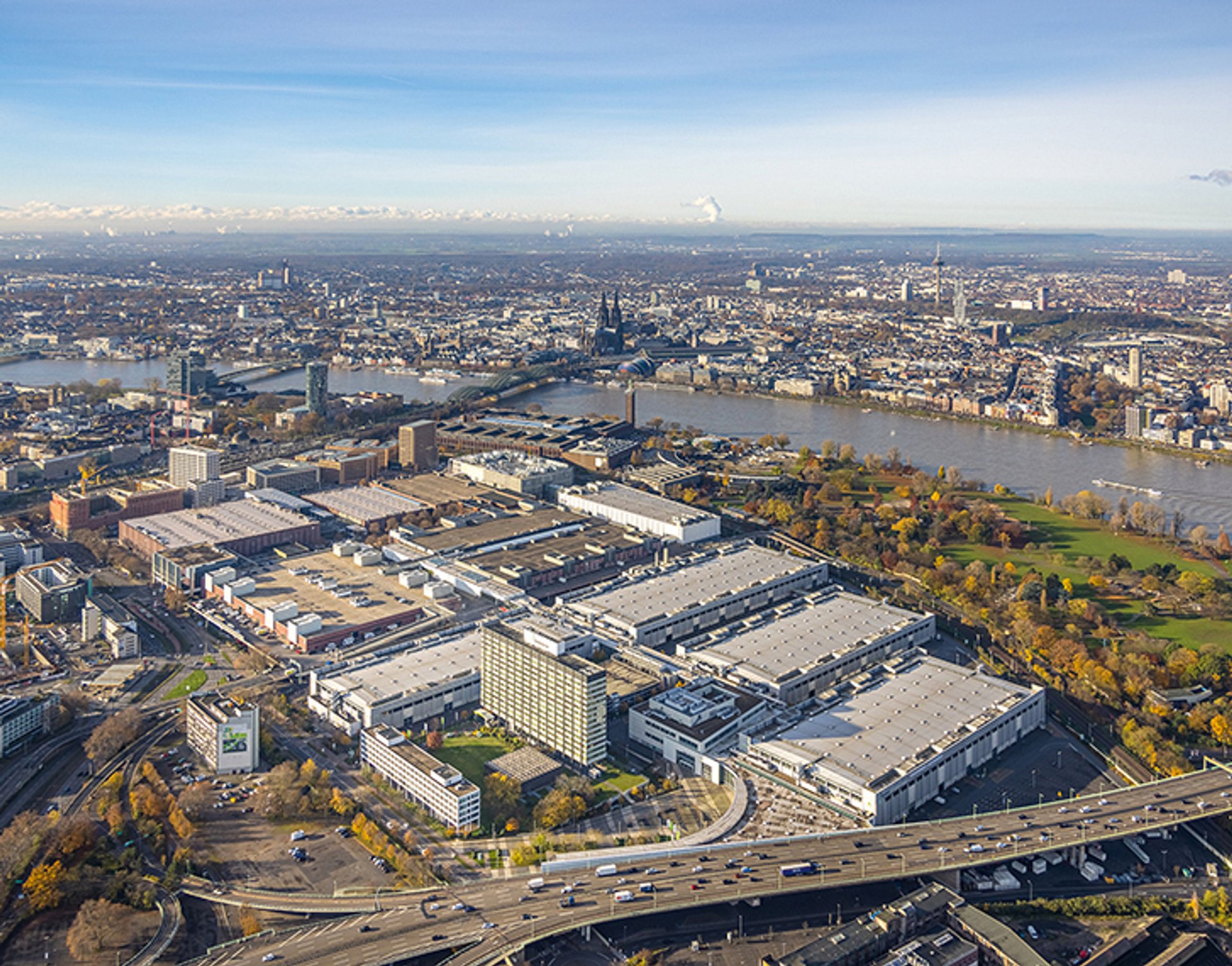
The Koelnmesse centre will be hosting Art Cologne
Koelnmesse/Hans Blossey
Birgit Maria Sturm, the managing director of the BVDG association of German art galleries, sees the reduction in the VAT rate as “the light at the end of the tunnel. Galleries have had a very hard time; they have developed a lot of resilience and been very brave. This is a big weight off their shoulders.”
In Hug’s view, the German market remains robust beneath the surface. He attributes much of the recent downturn on the global art market to the departure of speculators, often from the US. “It’s a correction,” he says.
“How does that affect Germany?” he asks. “It really doesn’t. The bulk of the German art market is the professional class. There are a ton of sales happening, just not in the multi-millions bracket. And there are families who, once a year, come to Cologne to buy a piece of art.”
As the world’s oldest art fair, dating back to 1967, Art Cologne has proven it can withstand economic hard times. It “might lack the glamour of Frieze or Basel, but I doubt they would survive if they were not fashionable”, Hug says.


